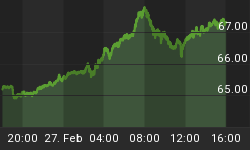There’s a school of thought within financial circles that says that bull markets do not die of old age but rather due to extraneous factors such as overconfidence, overspending and over-leverage. But we also know from history that no cycle of the market, bull or bear, lasts forever. We are undeniably in the midst of a secular stock bull market that’s been running for nearly a decade. But how long will the good times last?
If you are guessing maybe one, two, maybe three years tops, you could be grossly underestimating the strength of this bull. Some Wall Street ultra-bulls are saying this market is not even halfway done, and could run for decades from here.
Fundstrat’s Tom Lee has told Business Insider that risk-tolerant millennial investors will continue pumping trillions of dollars into the stock market for years to come, possibly powering the longest U.S. stock market bull run in history.
Lee has pointed to four factors that demonstrate the scale of shift in the investing ethos that we are talking about here:
- According to Fundstrat estimates, approximately $2 trillion of wealth flows from baby boomers to millennials per year through inheritance
- Over the next 20 years, millennials will inherit $76 trillion from previous generations, giving them unparalleled wherewithal to control the stock markets
- Millennials tend to prefer higher-risk assets like stocks and crypto, and
- Baby boomers are becoming a smaller relative share of the pool of wealth, meaning millennial asset preferences will fuel a structural shift in the investment universe
"Bull market until 2038? This is a possible base case. ... If demographics are destiny, US stocks will do very well," Lee wrote back in June, pointing out that every stock market peak since 1900 has coincided with a generation's peak.
ARK Invest's Cathie Wood, concurs with Lee’s thesis:
"I do believe that both crypto and the equity markets are going to be powered by millennials. They're really excited about the new technologies that are evolving today - they're really at the leading edge of them and understand them and are comfortable with them,"Wood said at a conference last week.
And they both could have a pretty solid case.
The Meme Stock Era
This year, we have witnessed a brand new pump-and-dump scheme unravel in the U.S. stock markets. Retail investors on digital discussion boards like Reddit’s Wall Street Bets have been focussing their collective financial firepower in an effort to lift the share prices of a few favorite companies, usually heavily shorted stocks by hedge funds.
Back in January, GameStop Inc.(NYSE:GME) surged an unfathomable 1,500% in the space of a few days after Reddit group “r/Wallstreetbets” (aka WSB), a longstanding subreddit channel created nearly a decade ago where more than 4 million Reddit users discuss highly speculative trading strategies and ideas, engaged in a crowdsourced pump-and-dump scheme that created massive volatility in the stock markets. The group exchanged unverified tips and poured in billions of dollars into heavily shorted stocks like GameStop with hopes to create a massive short squeeze for the hedge funds betting against them and cash out at their peak (GME short interest was around 150% when the squeeze hit.)
Next, beleaguered theater chain AMC Entertainment Holdings Inc. (NYSE:AMC) became the latest target of WSB.
In something of a sequel to the GameStop mania but with a fresh twist, AMC jumped nearly 500% over the space of 30 days after a massive round of retail buying of the heavily shorted stock.
More interestingly, AMC’s management was not shy to capitalize on the unexpected windfall with the theater chain selling over half a billion dollars in new shares in a matter of hours even after its management cautioned that its surging market price had little to do with the state of its actual business.
“We believe that recent volatility and our current market prices reflect market and trading dynamics unrelated to our underlying business,” AMC said in its sales pitch to investors and cautioned against buying the shares unless investors were willing to risk “losing all or a substantial portion of your investment.”
Investors appeared unfazed by the obvious risk, and snapped up the new offering in a couple of hours.
Other meme stocks that were banned on Robinhood after the February short squeeze made big moves, too: Koss Corp. (NASDAQ:KOSS), Naked Brand Group (NASDAQ:NKD), Sundial Growers Inc. (NASDAQ:SNDL), and Trivago Inc. (NASDAQ:TRVG) all outpaced the market by wide margins at the time.
Household wealth surge
However, meme stocks, which often start as low-priced, highly shorted stocks, are mainly ‘‘hype stocks’’ whose allure frequently fades pretty fast. Indeed, the New York Stock Exchange has warned that the prices of so-called meme stocks may be distorted because the majority of trades in those names are executed away from public exchanges where share price formation occurs.
However, millennials are likely to continue having plenty of sway on American stock markets considering the amount of money coming into their hands.
New Fed data has revealed that U.S. household wealth surged to $142 trillion in the second quarter, with just $46 trillion of that invested in U.S. stocks. Raising that stake to $100 trillion could mean another major bull rally that could, indeed, last for a decade or more.
















